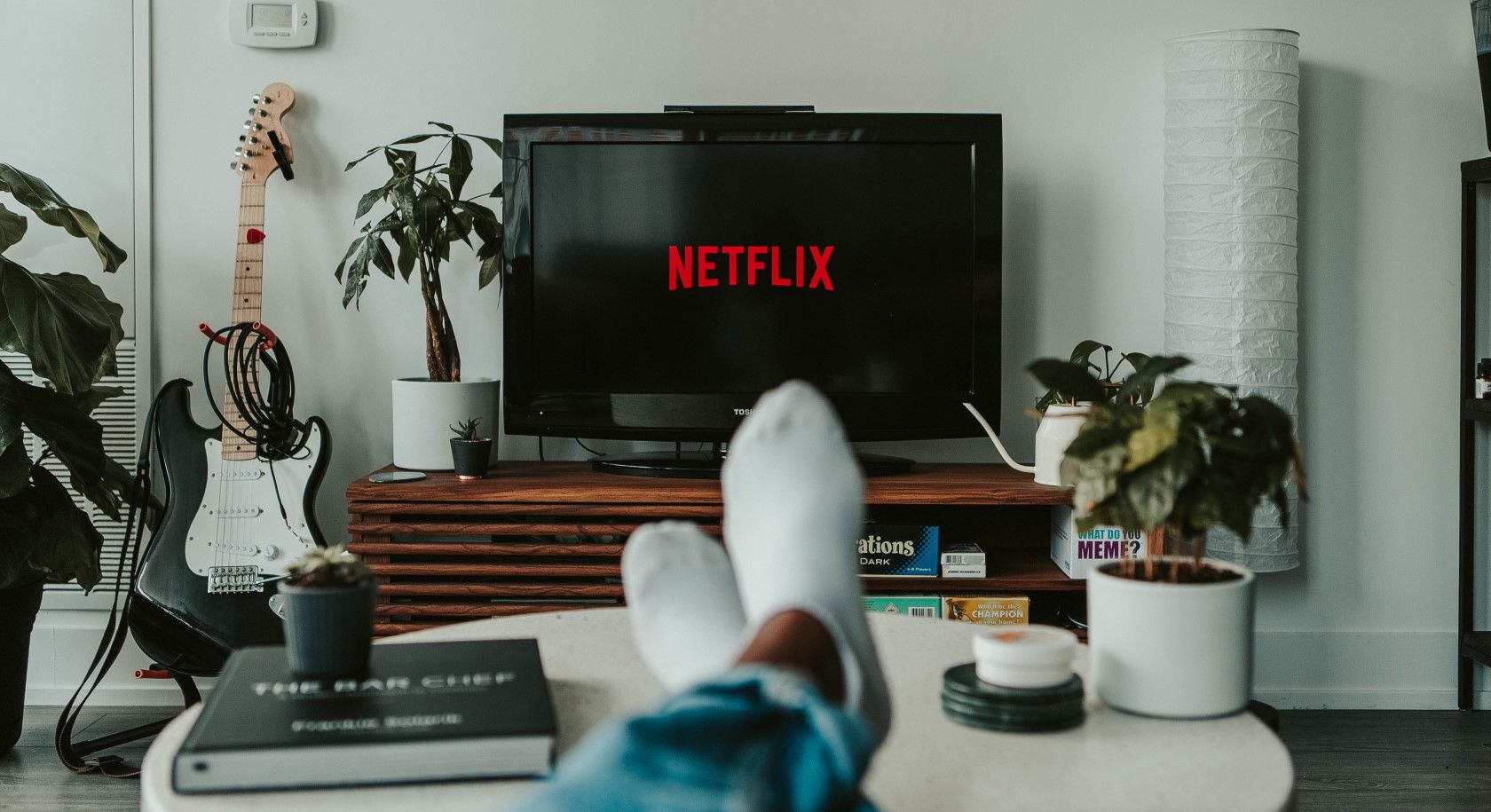Feeling proud about watching a whole season of Succession or House of the Dragon in record time? Seeing who can get through an entire season of the newest hit show the quickest is almost a contest these days.
Although binge-watching is a popular activity, it's unhealthy in the extreme. Keep reading to learn why you should step away from the screen more often than you'd like.
1. Increased Risk of Diabetes
Diabetes is a severe ailment that can result in a lifetime of insulin injections and dietary restrictions. The risk of diabetes rises with prolonged sedentary behavior. Maybe you're binge-watching while on the treadmill or something similar, but if not, there are many health issues from sitting too long that could raise your risk of developing diabetes.
According to a Time report, Researchers caution that for every hour of binge-watching, your diabetes risk goes up by 3.4 percent. Be particularly mindful of this if you have a family history of diabetes.
2. Screen Addiction
According to a HuffPost report, scientists say the cliffhangers at the end of many TV shows can release stress hormones. They make people want to start watching the next episode even if they hadn't planned on doing so—you just have to know what happens.
It's not always easy to recognize and overcome an addiction to your screen. Feeling like you have achieved something, even something as easy as binge-watching a show releases dopamine in the brain. That feel-good chemical has an uplifting effect and contributes to a feedback loop resulting in screen addiction.
3. Social Isolation
Besides harming your relationships, binge-watching could prevent you from forming new ones. People face various difficulties when trying to make friends, but most of us deal with them to stave off the debilitating effects of loneliness. While there are many apps that can help you alleviate loneliness, you'll continue damaging your relationships if you're constantly binge-watching.
Once your binge-watching habit reaches a certain level, your favorite shows and fictional characters will replace your social life and keep you satisfied. However, the lives of fictional characters can't replace face-to-face interactions.
4. Anxiety and Depression
You might initially binge-watch a show to cheer up or wind down but then experience the opposite effect. Researchers have confirmed that possibility through a study shared by Medical Daily about nightly TV habits. After only two hours of TV, people felt more depressed and anxious than those who watched less.
This is reason enough to stop binge-watching TV, especially if you are already trying to overcome mental health struggles. Besides monitoring your binge-watching, you could also try a therapy app for mental health aid.
5. Self-Control Issues
Netflix, Hulu, and Disney+ sometimes release all episodes in a season simultaneously, which undoubtedly contributes to binge-watching. You can even play the next episodes automatically to avoid touching the remote control.
Collectively, all this leads to less self-control as we get used to not having to wait for anything, per a University of Texas study. Binge-watching encourages you to get what you want immediately, leading to self-control issues. This problem could manifest in other areas of your life, like seeking instant gratification when it comes to eating, shopping, etc.
6. Cognitive Decline
Do you have to use technology to overcome forgetfulness? Your binge-watching habit may be aggravating this issue. Pastimes like binge-watching can make people prone to distractions and fail to achieve appropriate concentration levels to perform menial tasks.
Thanks to streaming media, entertainment is only a click or tap away. You no longer have to interact with your environment or other people for stimulation. If you often turn to binge-watching to avoid more strenuous brain activities, the binging could rewire your brain, resulting in cognitive decline.
7. Growing More Belly Fat
Finding it harder to button your jeans? That could also be because of binge-watching. Researchers from the University of Minnesota School of Public Health linked binge-watching to increased belly fat.
Specifically, 90 minutes of TV increases belly fat by about three cubic centimeters. That phenomenon did not happen with five other sedentary activities studied, including using a computer and reading.
8. Eye Strain
Watching TV is a well-known activity that contributes to eye strain. By binge-watching instead of giving your eyes a break from TV, you could experience a burning sensation, eye fatigue, and blurriness.
Mindless binge-watching keeps the brain sufficiently stimulated and energized to make it difficult for you to go to sleep. This implies that the longer you stare at the screen, the longer it will take you to shut it off, leading to excessive eye strain and poor sleep.
9. Disturbed Circadian Rhythms
As reported by BBC, a British study says that binge-watching makes people miss sleep, implying that people are so into the shows they're binge-watching that they can't stop themselves from turning off their TV or smartphone and going to bed.
Smartphones and tablets emit blue light, and exposure to it also throws off sleep schedules. Researchers caution about the link between blue light, disturbed natural circadian rhythms, melatonin levels, and poor cognitive performance.
10. Reduction in Physical Activity and Stamina
Poor muscles cannot sustain prolonged physical or mental activities. Research shared by Hindawi on the phenomenon concludes that respiratory activity is drastically reduced when sitting for long periods leading to poor stamina.
The more time you spend on the couch, the less you use your muscles for mobility. This leads to gradual muscular deterioration and a decrease in stamina, resulting in an even further reduction in your physical activity.
11. More Carb Cravings
Binge-watching for long periods promotes the habit of eating for pleasure. As you consume more calories and carbohydrates, your body is no longer just eating to satisfy hunger. Consuming excessive carbohydrates prompts the brain to release more dopamine, creating a positive feedback loop to keep eating.
As you consume more visual media, you crave carb-rich foods even when you're not hungry. Consuming food when you're not hungry leads to weight gain, an increase in blood sugar, and other health issues.
12. Blood Clots Formation
As per a Harvard Health study, your body could develop dangerous blood clots if you stay sedentary for more than four hours a day or regularly indulge in binge-watching sessions running into multiple hours.
Blood clots could form in the lungs leading to pulmonary embolism. Deep veins are also vulnerable to blood clot formation, especially in the legs, as blood tends to pool in the area, raising the risk of blood clots.
13. Cardiac Issues
According to an American Heart Association study, prolonged periods of staying sedentary, sitting, or reclining could lead to cardiovascular risks and decrease life expectancy.
Binge-watching checks all these boxes in addition to compounding the problem by aiding other bad habits like binge-eating, carb consumption, reduced physical activity, and excessive exposure to blue light.
14. Back Problems
Binge-watching usually involves sitting for long periods or reclining. This causes the spine to curve into a C-shape due to pressure on the spinal vertebrae and discs, leading to poor posture, tensed shoulders and neck, cramped muscles in the short term, and severe issues like chronic back pain and other musculoskeletal problems in the long term.
You can avoid certain back problems by maintaining good posture, but it's not always possible to hold it as you watch TV for hours on end.
Binge-Watching Is Okay in Moderation
Though binge-watching has become part of our society's culture, you shouldn't allow it to threaten your health. Given how many potential health risks it poses, limiting your habit of spending hours on end consuming media is crucial.
Set boundaries and abide by them, and you can still follow a show without watching it in one go—you can have your cake and eat it too. And while it's best to reduce your screen time, that doesn't mean binge-watching is all negative. There are positives to come from it, too.




.jpg)









.jpg)
